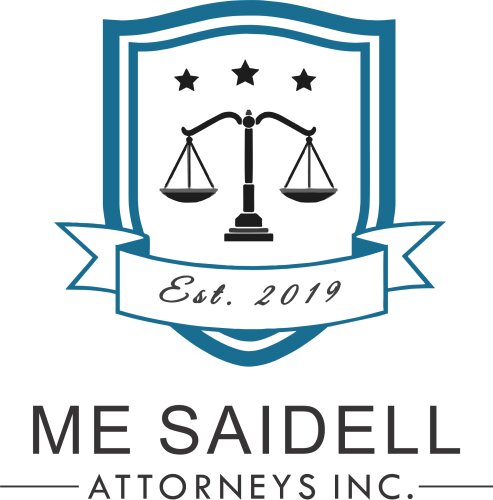Best Merger & Acquisition Lawyers in South Africa
Share your needs with us, get contacted by law firms.
Free. Takes 2 min.
Or refine your search by selecting a city:
List of the best lawyers in South Africa
About Merger & Acquisition Law in South Africa
Merger and Acquisition (M&A) law in South Africa governs the combination of two companies into one, which can take the form of a merger where they are of equal size, or an acquisition where one company takes over the other. This field of law is complex and involves multiple legal disciplines, including corporate law, competition law, securities law, and contract law. The South African M&A landscape is regulated by national bodies such as the Competition Commission and the Takeover Regulation Panel, ensuring that fair practices are upheld in the market.
Why You May Need a Lawyer
There are several scenarios where legal advice is crucial in M&A transactions:
- Due Diligence: Lawyers assist in conducting thorough investigations into the target company to reveal potential liabilities or risks.
- Contract Negotiation: Legal expertise is necessary for drafting and negotiating merger agreements to ensure the terms are favorable and compliant with local laws.
- Regulatory Compliance: A lawyer helps navigate the complex web of regulations to get the necessary approvals from authorities like the Competition Commission.
- Dispute Resolution: In the event of disagreements, legal intervention may be needed to mediate or arbitrate issues.
Local Laws Overview
The M&A landscape in South Africa is shaped by several key laws and regulatory bodies:
- Companies Act 71 of 2008: Governs mergers, amalgamations, and acquisitions, outlining procedures and essential requirements.
- Competition Act 89 of 1998: Monitors and controls anti-competitive practices and ensures that mergers do not reduce market competition.
- Securities Regulation Code: Administered by the Takeover Regulation Panel, it regulates transactions ensuring fair and equitable treatment of all shareholders.
Frequently Asked Questions
1. What is a merger versus an acquisition?
A merger involves two companies of similar size joining forces to create a new entity, whereas an acquisition occurs when one company takes over another.
2. How long does the M&A process take in South Africa?
The timeline varies depending on the complexity, regulatory approvals, and due diligence and can range from several months to a year.
3. What role does the Competition Commission play in M&A?
The Competition Commission evaluates mergers to prevent anti-competitive practices and ensure fair competition within the market.
4. What are the initial steps in an M&A transaction?
Initial steps include strategic planning, preliminary due diligence, valuation of the target, and negotiating a letter of intent.
5. Can an M&A deal be financed by borrowing?
Yes, leveraged buyouts allow the acquiring company to finance the purchase using borrowed funds.
6. What is due diligence in the context of M&A?
Due diligence is a comprehensive appraisal of a business entity to evaluate its assets, liabilities, operations, and commercial potential.
7. Are there tax implications in M&A transactions?
Yes, M&A transactions involve significant tax considerations, including potential capital gains tax and transfer duties.
8. Do all mergers require shareholder approval?
Typically, major mergers and acquisitions require shareholder approval as per the Companies Act, but specifics may vary.
9. How are employees affected in M&A transactions?
Employees may face changes in management or operations, and South Africa’s labour laws ensure their rights and benefits are protected during transitions.
10. What is the role of the Takeover Regulation Panel?
This body monitors transactions to ensure the fair treatment of shareholders, especially in hostile takeovers and mandatory offers.
Additional Resources
For more information on M&A in South Africa, consider the following resources:
- Competition Commission: Provides guidelines and policies relating to competition law.
- Companies and Intellectual Property Commission (CIPC): Offers resources on company regulations and registration.
- Takeover Regulation Panel: Ensures fair practice in significant corporate transactions.
Next Steps
If you require legal assistance with M&A, it is advisable to consult with a legal professional specialising in corporate and competition law. Here's how you can proceed:
- Start by gathering and organising all relevant documents related to the prospective transaction.
- Schedule consultations with M&A lawyers to discuss the specifics of your case and obtain quotations.
- Review the lawyer's track record, ensuring they have relevant experience in M&A within your industry.
- Consider seeking a referral or recommendation from industry professionals to find reputable legal services.
Lawzana helps you find the best lawyers and law firms in South Africa through a curated and pre-screened list of qualified legal professionals. Our platform offers rankings and detailed profiles of attorneys and law firms, allowing you to compare based on practice areas, including Merger & Acquisition, experience, and client feedback.
Each profile includes a description of the firm's areas of practice, client reviews, team members and partners, year of establishment, spoken languages, office locations, contact information, social media presence, and any published articles or resources. Most firms on our platform speak English and are experienced in both local and international legal matters.
Get a quote from top-rated law firms in South Africa — quickly, securely, and without unnecessary hassle.
Disclaimer:
The information provided on this page is for general informational purposes only and does not constitute legal advice. While we strive to ensure the accuracy and relevance of the content, legal information may change over time, and interpretations of the law can vary. You should always consult with a qualified legal professional for advice specific to your situation.
We disclaim all liability for actions taken or not taken based on the content of this page. If you believe any information is incorrect or outdated, please contact us, and we will review and update it where appropriate.
Browse merger & acquisition law firms by city in South Africa
Refine your search by selecting a city.















